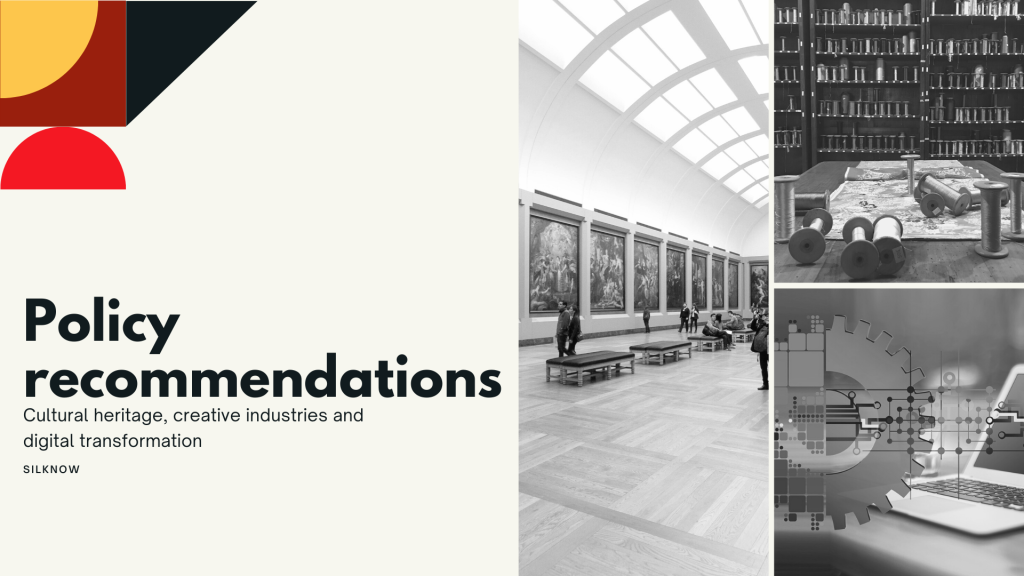After three years working at SILKNOW, we have been able to address broader issues that are presented on these pages. The result of these recommendations are the project’s own experiences and the vision and experience of professionals from the cultural, creative industries and technology sectors.

European cultural heritage is scattered among a myriad of museums and collections, many of them still lacking strong digital information capabilities. COVID-19 has provided evident proof about the demand for culture as an important part of European citizens’ ordinary practices, and not mainly for tourists, as was previously considered to be. Knowledge, preservation and access are now equally important avenues for future policymaking, with a strong digital involvement in all three areas.
The bonds between creative industries, cultural heritage organizations and educational institutions -particularly, those devoted to design, arts and other creative professions- should be encouraged and strengthened. Joint educational curricula, research projects, all kinds of interdisciplinary and intersectorial efforts must be welcome and supported, especially through any resources directed towards the digitization and innovative use of European cultural assets. SMEs are a particularly good environment for the jobs of the future. However, as the pandemic has shown, they are also more fragile. As a consequence, their actual opportunities are hindered and delayed.
Information society is fuelled by data, just like those massively produced by cultural institutions. This information, however, is kept in silos, within idiosyncratic, monolingual, heterogeneous repositories and catalogues. Open access to that cultural information is a requirement of the basic human right of access to culture. Once the information is shared, users want to interact with it, on different channels and modalities (graphics, 3D printing, audiovisual content), and machines can enrich it via artificial intelligence. Since digital transformation takes many forms, a sustainable approach will take into account collaboration with large repositories, such as Europeana. The semantic web is a key element in any digital effort that intends to turn data into a firm asset for European society